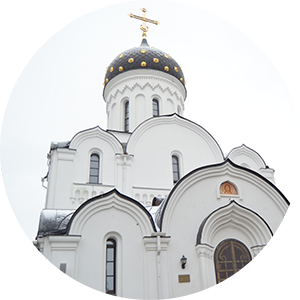It is common these days to see Orthodox church school teachers tweaking lessons, activities, and curricula from Catholic and Protestant resources for their own classrooms. Yes, there are some resources available from various Orthodox suppliers, but by and large, there is a lack of these resources, based on the fact that you see so many parents and teachers trying to adapt materials from other faiths. So, what is the traditional Orthodox approach to education and how do we incorporate it into our classrooms?
Firstly,
we need to understand that traditionally the Church directed education towards
adults and not to children. It wasn’t until much later that we picked up the
Protestant and Catholic approach of centering our educational efforts
exclusively on children. Predominantly, children were educated by their parents
through modeling and occasional instruction. Children learned their faith by
watching their family live it day in and day out and interacting with their
community. It was simply part of their life and therefore didn’t necessitate
separate, direct instruction until they were older and could understand more.
Secondly,
the classroom is not the only place for learning. For example, I can prepare a
lesson for my classroom of students at the beginning of Lent. I can even spend
hours preparing and creating activities, crafts, worksheets, videos, and
interactive bulletin boards to teach them about fasting, almsgiving, and
prayer, but the reality is that unless they go home and fast, give alms, and
pray…the lesson was meaningless.
Not a
single one of us would have our child attend a class once a week for 30-60
minutes to learn how to play the piano by means of a book, a worksheet or
coloring page, and the teacher sharing their experiences of playing the piano.
We would want our child playing the piano in the classroom, practicing at home,
and learning all they could in between for their big recital at the end of the
year. We would never even dream of sending our child to the piano recital
without actually having played the piano – but these are the expectations we
have for our children about their Orthodox faith. We don’t gradually teach them
how to fast because many believe – it’s just too hard for kids. We guide our
children away from the homeless person who walks into our church or hall
looking for help instead of providing him a meal. We get consumed in sports
practices, music lessons, homework, and projects and skip gathering our
children for even a quick prayer before crawling in bed to thank God for the
bounty of blessings He has bestowed upon us.
We have
neglected to live our faith and expect a book, worksheet, or activity once a
week to guide our children to be faithful Orthodox Christians. This is where
Orthodoxy is different. It is not just a set of beliefs. It’s a way of life –
lived not only on Sunday mornings at church but also when we go home, to
school, over to a friend’s house, work, and even as we type our status updates
and post photos on our favorite social media platforms.
So where
do we start to make changes? How do we return to an educational approach we
have left behind?
For
starters, we need to educate ourselves and especially our church school
teachers. Sophie Koulomzin, an Orthodox author and former professor on Orthodox
education, tells us, “You can teach only that which you have made your own…”
How many of us are teaching our children based solely on what we learned when
we were in church school as children? How many of us read the children’s
version of a Bible story to the class without ever having read the Bible for
ourselves? Would we find this practice acceptable of teachers at our children’s
schools? Most assuredly not! We need to move beyond the mentality that learning
about our faith ends at high school. We need to be open to continuing our own
education as we attend classes, retreats, webinars, read books, listen to
podcasts, and ask our parish priest questions. Learning is a lifelong process.
We need
to prepare a lesson ahead of time for our students. This may seem obvious, but
I’ve walked past many a classroom where the teacher was playing Hangman on the
chalkboard using “Orthodox vocabulary” or the ever popular construction paper
cross was being made once again because they simply ran out of time to prepare
a lesson for that Sunday. How can our children take the lesson seriously if we
don’t take it seriously?
We need
to connect the classroom and home as often as possible. This could include
sending a letter home to parents once a month telling them what their child
learned or is about to learn. It could also include sending activities or books
home for the children to share and do with their parents.
It is
vitally important we see not only the church school teacher as educator but
also our family, our priest, and our parish community. How wonderful would it
be to learn how to make prosphora from one of the older ladies in the community
who has been making it all her life? How invaluable would it be for our
children to learn at a young age that their priest is someone they can chat
with when they have a problem instead of trying to face it on their own? How
remarkable would it be for children to see their parents turning to prayer in
times of sorrow and joy?
By Jennifer Hock in The Sounding Blog
Source: http://myocn.net/what-is-orthodox-education/


















CONVERSATION